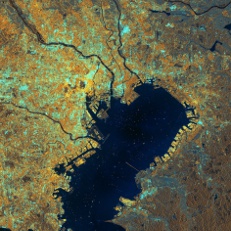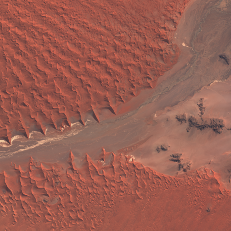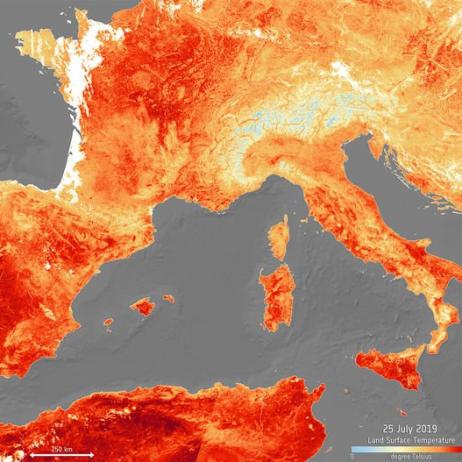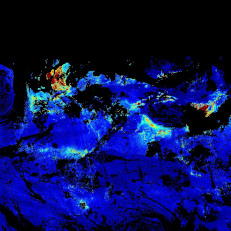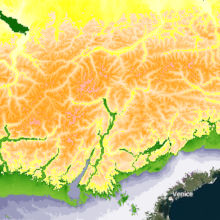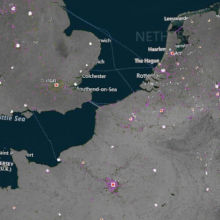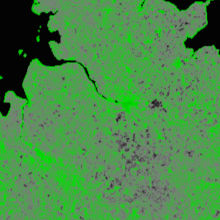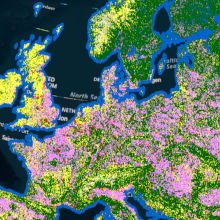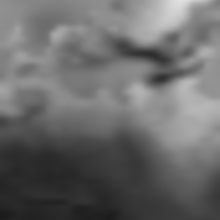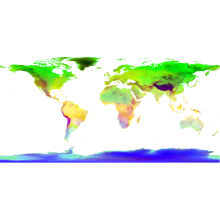GeoDataCubes
With its OGC Testbed-19 the Open Geospatial Consortium (OGC) in 2023 has conducted an initiative exploring several tasks, including Analysis Ready Data and Geodatacubes. Based on its leading datacube expertise and long-standing datacube standards shaping, rasdaman GmbH has been invited and subsequently contributed substantially. Concretely, a series of EO relevant datacubes has been provided ready for analysis and processing, gathered around the 3 use cases established by OGC Testbed-19:
- Use Cases A: Access to and exploitation of GeoDataCubes
- Use Cases B: Multi-datacube fusion as anticipated by Destination Earth
- Use Cases C: Meteorological Data Cubes

Datacube management, analytics, and fusion in rasdaman is straightforward. Datacube dimensions can be defined freely, with no problem to go beyond 4D (including having multiple time axes), therefore non-spatiotemporal axes can be added without any problem - some German research centers routinely operate 6D atmospheric datacubes. The map projection can be chosen freely, and automatic transformation from the meteorological grids into common GIS grids is available.
Tiling is configurable in rasdaman, therefore the final storage structure can be agreed during the T19 detail planning. All relevant conventions and standards will be respected, such as space and time coordinates and WMO naming practices.
All processing established by Testbed-19 can be readily expressed through OGC WCPS (including 4D corridor cutouts), as has been demonstrated; see this tutorial on WCPS. This way we motivate that there is no need for yet another - divergent - geodatacube standard, beyond proven WCPS. Notably, WCPS is also adopted by EU INSPIRE.
Within Testbed-19, rasdaman implements support for the GeoDataCubes (GDC) API on the server side, including OGC API - Coverages and openEO processes. Internally these API endpoints translate requests to WCPS queries for execution in rasdaman.

